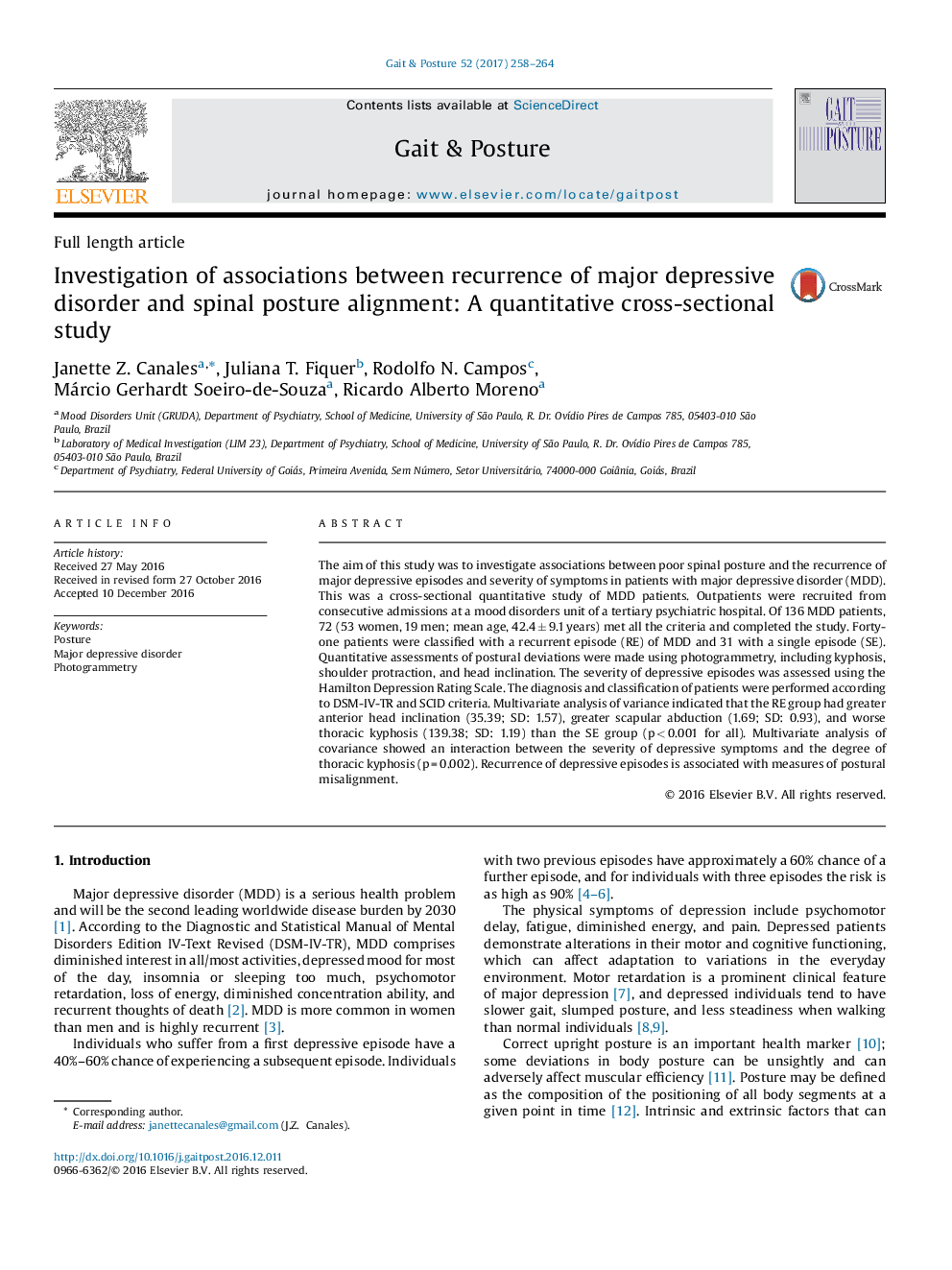ترجمه فارسی عنوان مقاله
بررسی ارتباط بین عود اختلال افسردگی عمده و همسویی ستون فقرات: یک مطالعه مقطعی
عنوان انگلیسی
Investigation of associations between recurrence of major depressive disorder and spinal posture alignment: A quantitative cross-sectional study
| کد مقاله | سال انتشار | تعداد صفحات مقاله انگلیسی |
|---|---|---|
| 158903 | 2017 | 7 صفحه PDF |
منبع

Publisher : Elsevier - Science Direct (الزویر - ساینس دایرکت)
Journal : Gait & Posture, Volume 52, February 2017, Pages 258-264
ترجمه کلمات کلیدی
پوسیدگی، اختلال افسردگی عمده، فتوگرامتری،
کلمات کلیدی انگلیسی
Posture; Major depressive disorder; Photogrammetry;

